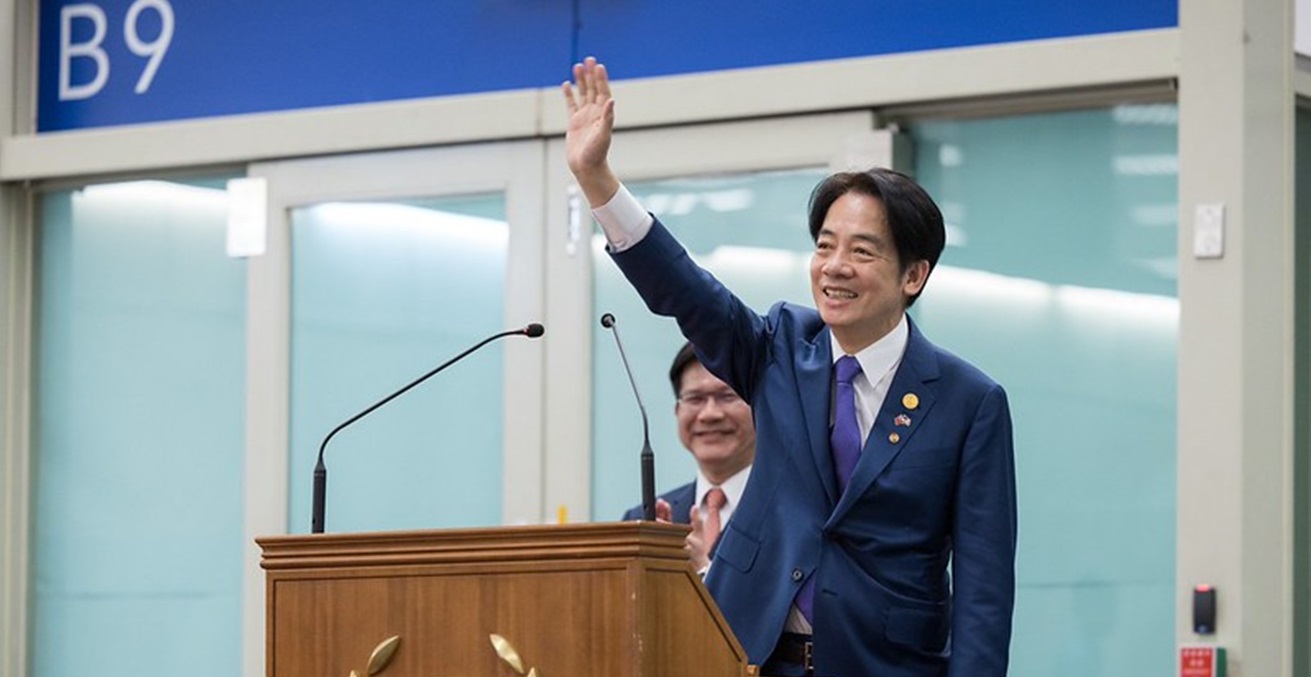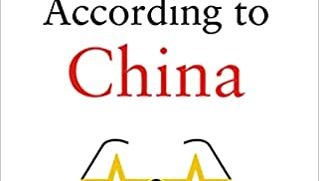What to Expect From Taiwan's New Elected President?

Mr William Lai (Lai Ching-te), who will succeed President Tsai Ing-wen as the Democratic Progressive Party (DPP) candidate for president, successfully won the 2024 presidential election despite losing a significant number of young voters. The DPP did not secure a majority in parliamentary seats, which could have a serious impact on the future legislative agenda and national budget of the DPP government.
President-elect Lai is perceived as a pro-independence political figure and, since serving as vice president from 2020, has been cautious in his stance on Taiwan independence. He advocates that Taiwan is a sovereign and independent country with the formal name of the Republic of China (ROC). His position is that there is no need to declare Taiwan’s independence, nor does he propose changing the formal country name. During an interview with foreign media in August 2023, Lai emphasised that Taiwan already was a “sovereign, independent country,” a viewpoint consistent with Tsai’s stance articulated three years ago. The implication at the time was that there would be no plans to actively pursue formal independence.
Shortly thereafter, but particularly since the 2024 elections, the People’s Republic of China (hereafter China) intensified its pressure via ongoing military aircraft and naval harassment, as well as diplomatically seizing Nauru, one of Taiwan’s diplomatic partners, and planning to terminate the Economic Cooperation Framework Agreement (ECFA), a crucial free trade agreement between Taiwan and China.
In the foreseeable future, it is expected that due to the DPP’s refusal to accept conditions that diminish Taiwan’s international status imposed by China, such as the so-called “1992 Consensus” asserting that both sides belong to one China, Beijing will continue to cut off communication and dialogue across the strait. With Lai’s pro-independence stance, China is likely to increase pressure on Taiwan on various fronts, including by lobbying against Taiwan in international organisations, continuing its manifold military threats, and testing the possibilities and limits of US and Japanese support for Taiwan. This pulpable tension in the Taiwan Strait is anticipated to increase, leading to heightened US military deployments in the first island chain in the Pacific. This also implies that the Taiwan Strait region will be a highly unstable area, significantly affecting the peace and stability of the Indo-Pacific region.
Advocating for “Value Diplomacy” in line with Tsai Ing-wen’s foreign and China policies
Tsai’s leadership has garnered international praise on several fronts. Her commitment to maintaining stability in cross-strait relations through a measured and cautious approach has been acknowledged. Additionally, Tsai’s resilience against pressure from China, unwavering defence of Taiwan’s sovereignty, and promotion of international engagement have reinforced Taiwan’s presence on the global stage. Furthermore, the administration’s efforts to develop further economic diversification, seeking trade agreements and promoting innovation, showcase a commitment to reducing economic vulnerability. Finally, Tsai’s steadfast dedication to democratic values has earned support from nations far and near that also value principles of democracy. Together, these aspects highlight Tsai’s multifaceted leadership and Taiwan’s contributions to regional and global institutions and stability. Due to Tsai’s stable foreign and China policies, their continuation under President-elect Lai will be a focal point of global attention.
During the election campaign Lai repeatedly emphasised his commitment to the Tsai Ing-wen administration’s path. He aims to promote “Value Diplomacy”; connecting Taiwan more deeply and securely with the international community based on universal values such as democracy, peace, and prosperity. This is expected to contribute to Taiwan’s overall development as well as maintenance of regional stability in the Taiwan Strait. The new president has also outlined “four pillars” for his foreign and defence policies, which include strengthening national defence deterrence, enhancing economic security, establishing partnerships with global democratic countries, and maintaining stable and principled cross-strait leadership.
Economic policies aligned with geopolitical changes
In response to geopolitical changes and global supply chain restructuring, Lai advocates for the development of “Five Trusted Industries.” These industries encompass semiconductors, Artificial Intelligence (AI), autonomous defence industry development, cybersecurity and smart surveillance, and communication and low earth orbit satellites. Given the evolving geopolitical landscape, Taiwan must enhance its national strength, incorporating technological capabilities into global supply chain restructuring for economic development and regional stability.
In semiconductors, Taiwan holds a 24.3 percent global market share in integrated circuit design, ranking second globally. The semiconductor industry in Taiwan ranks first worldwide, with over 90 percent market share in advanced manufacturing processes. Taiwan Semiconductor Manufacturing Company (TSMC), a global leader, has been encouraged by the DPP-led government to invest abroad while maintaining its global R&D centre in Taiwan.
The Taiwan government also aims to industrialise AI in Taiwan, seeking to assist Taiwanese businesses in transforming and addressing climate change issues by promoting digital and green transformations. Across the defence industry, Lai promises to continue Tsai’s policy of autonomous defence industry development, including the production capability of fighter jets and submarines.
The focus on cybersecurity and smart surveillance industries recognises China’s ambitions to alter international orders, especially amid the global shift away from China-reliant supply chains. Taiwan must proactively join global supply chain restructuring efforts and become a key player and technological leader. Lai thus advocates for Taiwan to drive key industries in these areas. Faced with threats from China, particularly as Taiwan grapples with cyberattacks and disinformation campaigns, collaboration on cybersecurity policies with democratic nations has become critically important for the island nation.
Finally, the new government will seek to collaborate globally to promote 6G communication and low-earth orbit satellite development. Taiwan’s external communications heavily depend on submarine cables. In the event of China initiating hostilities against Taiwan, there is a risk that China would cut Taiwan’s submarine cables, disrupting its external communications. For example, in 2023, two submarine cables between Taiwan and the outlying island of Matsu (located near mainland China) were cut off by unidentified Chinese vessels, completely severing internet communications. The recognition is therefore that these will aid national resilience.
In sum, due to geopolitical considerations, and more specifically the threat posed by China, President-elect Lai’s economic policy is centred around promoting Taiwan’s economic development while ensuring national security through international cooperation. The Lai administration aims to align with the US Indo-Pacific strategy, and draw on Taiwan’s technological prowess to collaborate with Indo-Pacific strategic partners and to collectively drive economic development. Under shared strategic interests, the goal is to safeguard Taiwan’s national security and future.
Dr Hsu Chien-Jung (PhD, Monash University) is Director of the Cybersecurity Technology Institute at the Institute for Information Industry, Taiwan; Research Affiliate, Chinese Studies at Monash University; and adviser on Cybersecurity of Finance, Taiwan Academy of Banking and Finance. Dr. Hsu is also the chief architect of President William Lai’s Cybersecurity White Paper Project.
This article is published under a Creative Commons Licence and may be republished with attribution.





